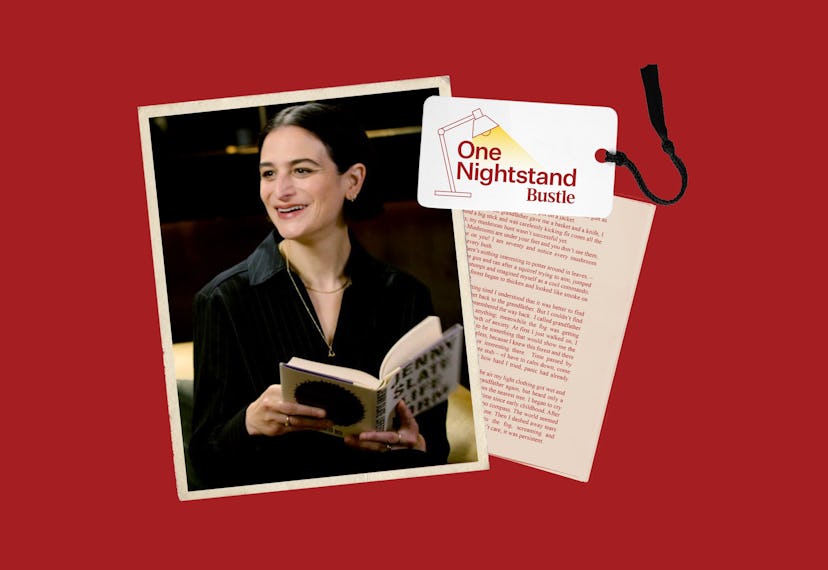Books
One Nightstand With Jenny Slate
The Lifeform author is inspired by books about isolation, loneliness, and exile.

In One Nightstand, celebrity readers and writers join us in the blond at 11 Howard to discuss four of their favorite books, allowing us to learn about their tastes and lives in the process.
At first glance, Jenny Slate’s favorite books couldn’t appear more diverse. There’s a feminist classic, a children’s book, a work of historical fiction, and a Booker Prize-winning British novel. But upon closer examination, the common thread — themes of isolation and loneliness — comes into focus.
“I live in a state that could tip into isolation just as often as it can tip into an overwhelming feeling of deep connection,” Slate tells me when we meet in New York to talk about Lifeform, her soulful and surreal new essay collection, as well as the works that inspired it. “I feel like someone who's like cleaning up a beach every morning and you can't help the tide.”
While these ideas are present in each of Slate’s selections, they’re the most acute in the two books that we come to call her “mini canon of exiled women.” The first is Hotel du Lac by Anita Brookner: “That book astounded me... I read it when I was single and I wanted to feel how she felt: safe in my own small life [without] defining myself as discarded, pathetic, or a 200-year-old nun.” Then there’s The Hearing Trumpet by Leonora Carrington. “The main character is an elderly woman in her 90s who is toothless, has a beard, and can't hear anything. Everyone's just like, ‘Oh, get away!’ But she’s like, ‘It doesn’t really bother me that I look like this!’”
Lincoln in the Bardo by George Saunders, on the other hand, explores the way grief can feel make us feel alone in the world. “It’s hard for me to reread now, as a parent, because the book is about [Abraham] Lincoln visiting his dead child’s grave,” says Slate. Yet she’s still drawn to the occult. “[I’m] a person who wants to talk about my ancestors and my beloved dead.”
And despite the fact that her final pick, Little Shrew by Akiko Miyakoshi, was written for kids, it has just as profound of a stance on what it means to live a (fairly) solitary life as any of Slate’s other choices. “When I read books like Little Shrew, or make work like Marcel the Shell, these are about tiny individuals, who completely own their daily processes, and are just engaged in their living,” she says. “I identify with this because I feel it in my own way. And I think it's the most precious, precious feeling.”
Below, you’ll find our full conversation with Slate — in which she discusses her thoughts on weirdness, reading to her daughter, and feeling like a whoopee cushion.